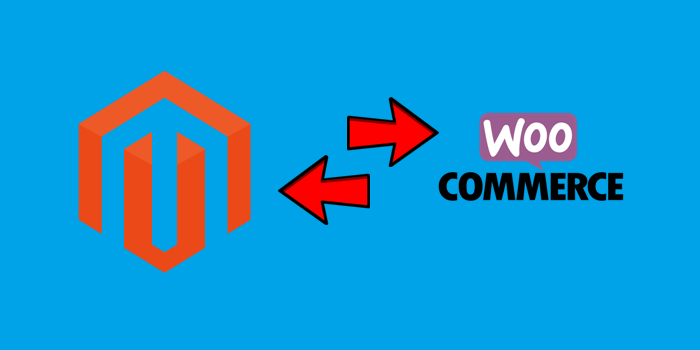ECommerce has become a necessity for all the business categories. While the prospects are immense, the essentials also need to be kept in mind. One of the key deciding factors are in which eCommerce platform should you build your next online business website. There are multiple options available in the market, which include both pre-built and custom-built templates ad frameworks. However, let’s first discuss which is a better eCommerce platform: Magento or WooCommerce.
Magento and WooCommerce, both are free eCommerce platforms. There are multiple reasons why they are preferred over others. Some of the key reasons include:
Open Source Accomplishments
Magento and WooCommerce are open source platforms, providing powerful user access. They give you complete ownership of the code, which means that with them you can be as creative as you want.
Powerful, Secure & Highly Adaptable
There is a reason why Magento and WooCommerce conjointly power 50% of all eCommerce portals. Both are secure, robust and adaptable. Both have powerful features, functionalities and offer remarkable support.
Differences in Features and Functionalities
Magento is a CMS assembled unambiguously to execute eCommerce business operations. It has a myriad range of valuable features and functionalities that can empower online portals to achieve grander success.
Imposing features and functionalities like product comparisons, cross-selling, coupons, discounts, and up-selling make Magento a vivid choice for web app development in India with major focus on online sales. It also allows multi-site functionalities with a distinct admin control. It can consolidate multiple eCommerce stores in one dashboard.
Contrariwise, WooCommerce is a well-built eCommerce framework by WordPress. It allows integrated, good-looking media into the product pages. It also has multiple features and functionalities like adding multiple user reviews, filtering information and has manifold search options.
WooCommerce also has a key advantage to have even the non-eCommerce features and functionalities, which is not existent in Magento. It has access to all WordPress features and can be used to create a competent website around the eCommerce gateway.
Cost Efficient Development
Individually, both Magento and WooCommerce are freely available platforms. There aren’t any hidden expenses or monthly subscription fees associated with them. The project costs are low and one just needs to invest time in development only.
However, with similarities, each of this has its explicit benefits which make them the best option for specific online businesses.
Difference in Usability
Magento is used by brands worldwide. However, being powerful in function, Majento is somewhat complex to handle in usability. So you need to pay more for a dedicated Magento developer as compared to a WooCommerce developer. WooComerce is simpler to use. If a developer has worked on WordPress earlier, then he shall take really less time to adjust on WooCommerce.
But remember that WooCommerce has limited functionality as compared to the imperious Magento platform.
Future prospects in Development
Magento estimates well as it is strengthened by its huge variety of features. For more scalable eCommerce development projects, it provides a grand product, which is packaged and named as Magento Enterprise Edition. This version is not low priced, but you get a better support, mobile friendly design, enhanced search features, improved content management and superior page caching functionalities.
WooCommerce, on the flip side, is reinforced with a lively development community. One can easily use and have access to an affluence of already existing and ever growing numbers of plugins and extensions. However, WooCommerce scalability can also be a problem as it is endorsed for performing greatly to an extent of 2500 products.
Final Words:
WooCommerce is more specific for smaller eCommerce websites and is especially designed for SMEs. Magento, on the other hand, is more desirable for larger eCommerce websites because of multi-store management functionalities.
We can conclude that both Magento and WooCommerce have their own idyllic set of business users. Both have their own variations in the set of features and functionalities. There is no correct or incorrect option between the two. Both are vivid platforms and can perform exceptionally well for any online business.



